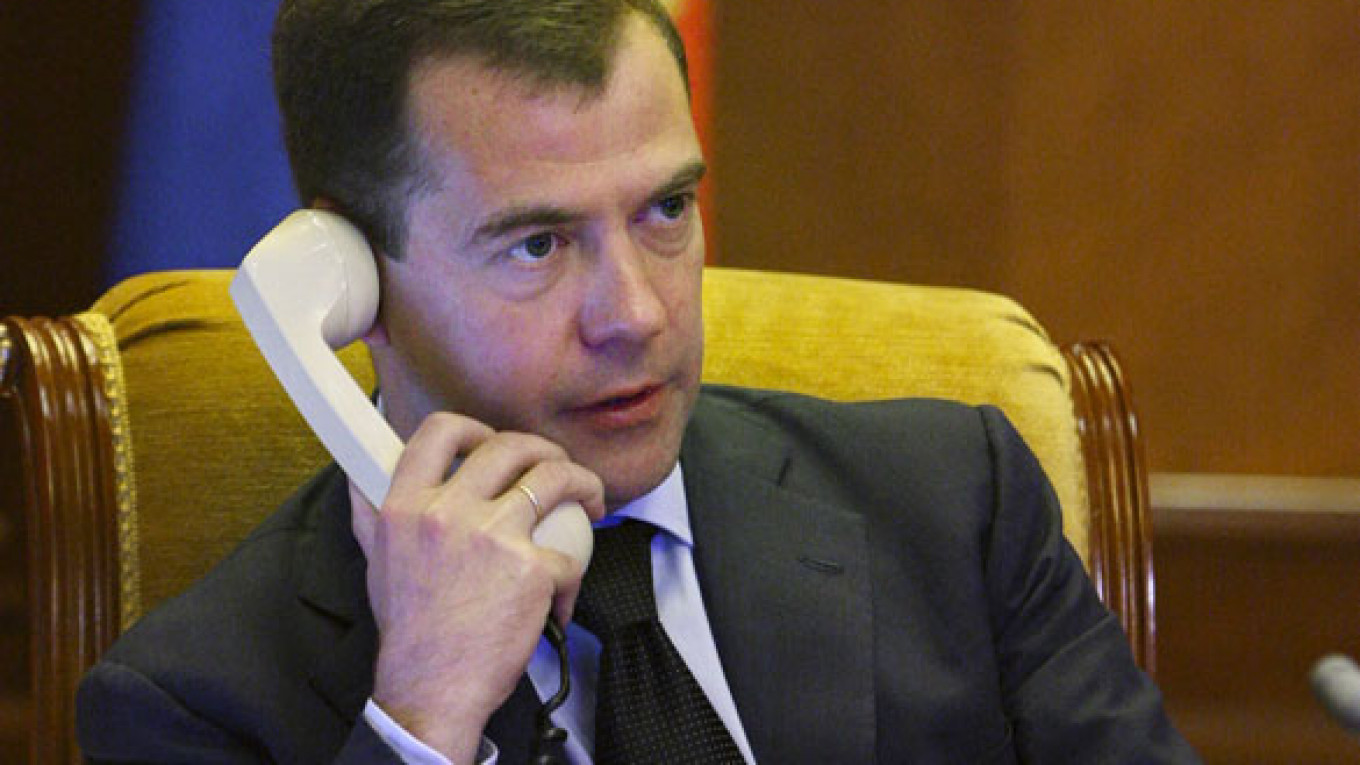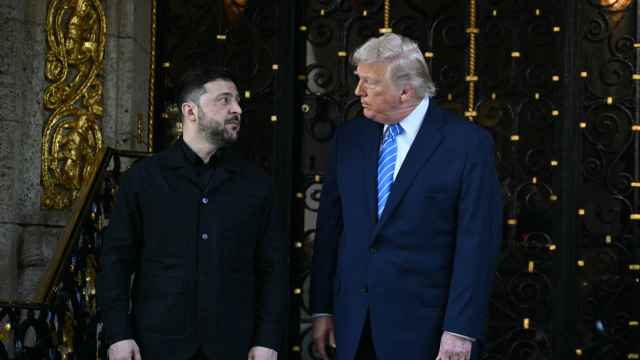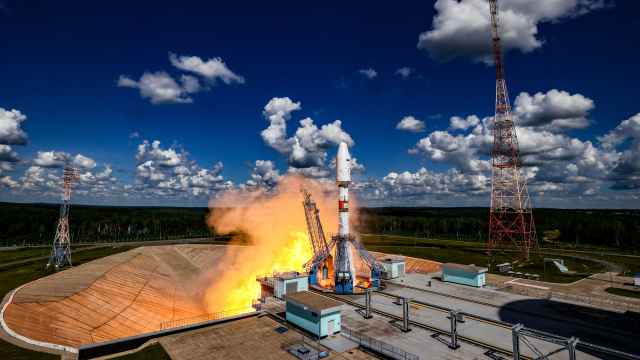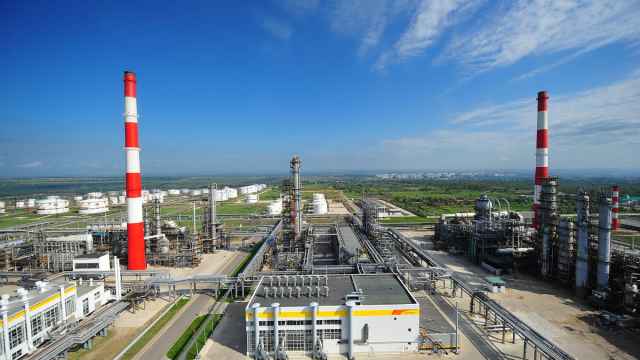The Kremlin on Tuesday ruled out the possibility of the government buying a stake in Russia’s biggest mining company, Norilsk Nickel, to end a bitter dispute between its two major shareholders, Oleg Deripaska and Vladimir Potanin.
President Dmitry Medvedev also ordered the Prosecutor General’s Office to look into the dispute, a Kremlin source told reporters Tuesday in comments carried by several Russian news wires.
“It’s not clear if there were violations,” the source said. “Every side has its truth.”
Sources said last month that Deripaska, whose aluminum maker United Company RusAl owns 25 percent of Norilsk, discussed with unidentified state-owned companies having the government enter the world’s largest nickel producer to resolve the dispute, Bloomberg reported.
“Norilsk Nickel is a private company and must remain as such in the future,” the Kremlin source said.
Ideally, another private company could acquire an interest in Norilsk to ease operations there, the Kremlin source said.
The Finance Ministry last month unveiled plans to sell stakes in 11 state-run companies, which Economic Development Minister Elvira Nabiullina described as an attempt to reduce the state’s “excessive” role in the economy.
Vladimir Potanin and his former business partner, Mikhail Prokhorov, gained control of Norilsk Nickel during the controversial loans-for-shares privatizations in the mid-1990s. Prokhorov later sold a 25 percent stake to RusAl, setting off a seven-month battle for control between Deripaska and Potanin.
The state eventually brokered a truce between the two billionaires, fearing that the boardroom conflict could hurt operations at the strategic company.
Tensions between RusAl and Interros, Potanin’s holding company, flared up again in June after RusAl unexpectedly secured fewer board seats at Norilsk than it expected under the peace agreement with Interros. RusAl immediately voiced suspicions of vote rigging at the June 28 annual general meeting. Norilsk and Interros denied any wrongdoing.
RusAl board members asked the Kremlin in a letter sent Monday to appoint an independent auditor to investigate the elections to the board, which RusAl says contradicts a deal signed with Interros in 2008 for each of them to have four seats on Norilsk’s 13-member board.
The aluminum producer came out of the vote with just three seats, which gave the upper hand to Interros, whose presence on the board remained unchanged. Norilsk executives increased their representation to three members.
In an attempt to pacify Deripaska, Norilsk earlier this month moved board member and Interros executive Andrei Klishas to the newly created position of Norilsk’s president. The appointment means that Klishas is no longer an Interros representative, which Norilsk said restored parity on the board of directors. RusAl remained unappeased.
The Kremlin indicated that it was unhappy that the dispute crippled a major taxpayer. “This is a large company and it’s not good that there’s such a serious conflict between the shareholders,” the source said.
Norilsk’s board of directors created a “conciliation commission” Tuesday to help find compromises, given the “tense situation” among its main shareholders, Norilsk said in a statement.
At the suggestion of independent director John Gerard Holden, the board voted to form the body, which will include a director from Interros, an independent director from RusAl, an independent director from Norilsk, and the company’s chief executive, Vladimir Strzhalkovsky, the statement said.
But RusAl said in a statement that the board did not approve the creation of the committee, a move which it said fell outside the board’s purview.
“The situation can only be settled through the appointment of an independent professional management team that will apply the highest standards of corporate governance and will be able to propose an action plan to raise the company’s capitalization in the interest of its all shareholders,” RusAl said.
Interros had not responsed to the latest dispute Tuesday evening.
The government’s refusal to assume ownership of yet another chunk of private business at a time when it prepares to sell off its economic assets does not mean it will not change its mind and buy a slice of Norilsk from either Deripaska or Potanin, said Andrei Lobazov, an analyst at investment company Metropol.
Deripaska said Friday that RusAl was also ready to buy out Interros’ stake in Norilsk — an offer that is likely to fall flat with Potanin, whose investment company has said repeatedly that it would only agree to buy RusAl’s stake instead of parting with its own.
Lobazov said he could not think of any other Russian mining company that could vie for either of the 25 percent stakes. He all but ruled out an investor from outside the country.
“A foreigner is the last possible option,” he said, adding that the government would not tolerate foreign ownership in Norilsk.
If the state were to buy an interest in Norilsk, it would likely not settle for anything less than the full stake held by Deripaska or Potanin, the analyst said.
Deripaska said Friday that he wanted to replace the management at Norilsk to raise its market value and divest underperforming assets.
The RusAl CEO also said he feared that the board might ignore RusAl’s need for greater dividends from the cash-rich Norilsk. RusAl wants the payouts to service its $12.9 billion debt, while Interros has preferred buybacks to boost the value of outstanding shares.
RusAl will call a special meeting of Norilsk shareholders in an attempt to re-elect the board as soon as it can force Interros — by presenting legal documents — to vote in line with the 2008 agreement, Deripaska said.
A Message from The Moscow Times:
Dear readers,
We are facing unprecedented challenges. Russia's Prosecutor General's Office has designated The Moscow Times as an "undesirable" organization, criminalizing our work and putting our staff at risk of prosecution. This follows our earlier unjust labeling as a "foreign agent."
These actions are direct attempts to silence independent journalism in Russia. The authorities claim our work "discredits the decisions of the Russian leadership." We see things differently: we strive to provide accurate, unbiased reporting on Russia.
We, the journalists of The Moscow Times, refuse to be silenced. But to continue our work, we need your help.
Your support, no matter how small, makes a world of difference. If you can, please support us monthly starting from just $2. It's quick to set up, and every contribution makes a significant impact.
By supporting The Moscow Times, you're defending open, independent journalism in the face of repression. Thank you for standing with us.
Remind me later.






